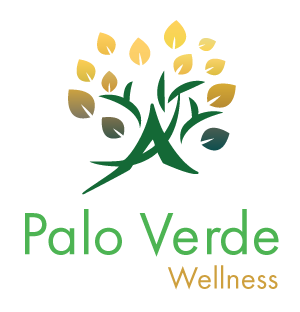Relapse prevention is the key to any effective substance use disorder treatment and recovery program. Maintaining your sobriety is hard work – that’s just a fact. Being able to avoid the situations and triggers that put you at risk of relapse is something you need to work hard at being able to do. Palo Verde Wellness offers relapse prevention therapy in order to prepare you better to recognize triggers and have the tools to avoid and overcome these situations.
Lifelong sobriety is the goal, and our team wants to work hard right alongside you to get there. Contact Palo Verde Wellness at 760-359-2180 for more information today.
Tips to Avoid Relapse
Relapse prevention and aftercare are essential after treatment to keep you accountable, sober, and living the life you want to live free of addiction. Here are five tips for preventing relapse.
1. Focus on Your Health
This may seem obvious, but it’s not for everyone. Both your physical and mental health is greatly affected by addiction. Building your body back to an optimal state takes time, dedication, and discipline. It’s an important part of the recovery process. Plus, a focus on something other than substance use is a great distraction to keep you focused, on track, and clear of potential triggers.
2. Build Coping Strategies
Think of this like your own personal toolbox. These tools stay with you wherever you go so that you are always armed with what you need when you come across a roadblock to your sobriety. Tools can range from breathing exercises to a sober support network and everything in between.
3. Get Support
Having a sober support network is a must-have as you work to maintain your sobriety, whether it’s a support group of peers going through recovery as well, or friends and family that you can count on to be supporters of your sobriety when you need it.
4. Recognize Your Triggers
Part of the work of substance use disorder treatment is learning how to identify what the triggers of your addiction are. They are not always readily apparent at first. It can take time to know what they are and then put in the work to avoid them. Triggers can be anything; a person, a situation, a place, an event, or a thing.
5. Stay Busy
Distraction is key to avoiding a relapse. Having a hobby, taking up a sport, or rediscovering something you enjoyed spending time doing before drugs or alcohol took hold, can be a big factor in your successful sobriety.
Maintaining your sobriety is a challenging and lifelong effort, but you don’t have to do it alone. Many programs, therapies, and support groups exist to help ease the pressures of recovery and sober life. An aftercare program should be added to your full treatment plan to set you up for success after treatment.
Relapse Prevention Therapy
Relapse prevention therapy is offered at many addiction treatment facilities as part of cognitive-behavioral therapy (CBT). This extra help in the recovery process can help those suffering from a substance use disorder successfully avoid triggers and cravings that lead to a relapse. CBT is an evidence-based therapy that focuses on what emotions are closely tied to your substance use and abuse. These emotions and the triggers that go along with them are unique to each individual, and so their treatment plan will also be customized and unique to them.
Relapse prevention therapy plans include:
- Mentors and peers to support you and the plan
- Understanding what has led to your substance use and why you want to stop
- Specific goals
- Manageable steps
- Accountability
- Self-assessment
- A toolbox to help manage triggers
The risk of relapse exists in the physical, mental, and emotional parts of your life. If you haven’t done the work to learn what emotions lead you to substance abuse, then it will be all too easy to fall victim to these emotions again. When your thoughts get away from you, and you start to daydream about the highs of your substance use, the next step usually is not a good one. The action of using drugs or having a drink after leaving treatment is never a one-time event; if you do it once, you will do it again, and then it’s a relapse.
Discover the Relapse Prevention Programs at Palo Verde Wellness
The team at Palo Verde Wellness is ready to get you back on track to a healthier lifestyle. Our goal is to arm you with the tools you need to succeed in your treatment and recovery journey and avoid a relapse.
In addition to relapse prevention therapy, we offer:
- Cognitive-behavior therapy (CBT)
- Dialectical behavior therapy (DBT)
- Eye movement desensitization and reprocessing therapy (EMDR)
- Adventure therapy
- Holistic therapy
- Group therapy
- Meditative therapy
- Motivational interviewing
- Anger management
- Person-centered therapy
- Psychotherapy
- Post-traumatic stress disorder (PTSD) treatment program
Give our understanding treatment team a call today at 760-359-2180 to learn more about relapse prevention therapy and the steps you can take to avoid the triggers that lead to addiction, or fill out Palo Verde’s online form and let us get back to you.

